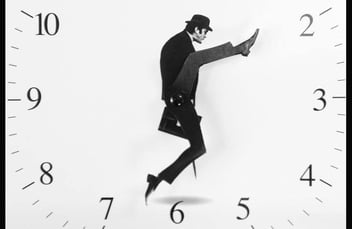We are emotional beings, always in the grip of some feeling or another. Anything that happens, or doesn’t happen, produces some kind of an emotional response in us. And living like that, day upon day, year upon year, we fall into some sort of an ongoing mood, one that we are not even aware of, but one that very markedly impacts our outlook and our actions.
This is a brief write-up explaining the 6 basic moods that people tend to live in. (This is me sharing my interpretation of this topic from the field of Ontological coaching; this is not meant to be a rigorous elucidation). The value of this framework is to:
- become aware that there is a background mood we tend to operate in which dictates what choices we make or even consider,
- identify the basic mood which we spend most of our time in, and then,
- aim to shift that mood in order to produce the possibilities for new action.
First, the distinction between mood and emotion for the context of this note would be in order:
Emotions are a quick charge of feeling we experience in response to an event (viz. someone cutting us off dangerously while driving, news of a promotion or a new contract, hearing about our child’s accomplishment at school or in a competition, etc.) The charge lasts for a few seconds, gradually dwindling as we return to the background mindset in which we have been living our life.
A mood on the other hand is that background mindset. It is a way of being that we have built over time. It can be quite transparent to us but it becomes our predominant lens for looking at life. It is our predisposition for responding (or not) and how. Moods can last for months, years and even our entire lifetime. Moods are not static. People move through them over time, and different moods can govern different areas of our life.
The 6 moods arise when I either resist or accept one of 3 things about life and/or myself — Facticity, Possibility and Uncertainty:
| Facticity | Possibility | Uncertainty | |
| Resist | Resentment | Resignation | Anxiety |
| Accept | Peace | Ambition / Enthusiasm | Awe / Wonder |
Facticity is a fixed characteristic of reality — something that is in the past or is a fact that cannot be changed, viz., the death of a loved one, what my ethnicity is, the fact that I did not get a job or promotion I desired (at the time that I desired it), etc.
When I resist what cannot be changed, I am in Resentment. I am a victim, and do not believe what happened was right. My reaction is to lash out or be silently angry about it. Not much good can come out of that, as my attention is in the past and my energy is not available for action directed at the future. When I accept what cannot be changed, I am at Peace. I am not stewing. I can turn my attention to other things that might meet my needs. And energy follows attention.
Possibility is something that I see as possible for me, or not. Do I see something as a changeable aspect of me? Viz., I am fat and can never lose weight, I cannot speak confidently in front of senior executives, I would like to be mentored to interview better (because I believe that is something I can learn), etc. When I don’t accord something the status of “being possible”, I am in a mood of Resignation. I have no energy to work towards it because I don’t believe that my actions will change anything. But when I view something as within the realm of possibility for me, I am in a mood of Enthusiasm (or Ambition), and I approach it with vigor (root of enthusiasm is en theos = In God).
Uncertainty is a characteristic of my environment / something external to me, is in the future and over which I exert no control, viz., there might be an earthquake in California, my company might be acquired or might elect to have a layoff, etc. Uncertainty is actually a facticity of life. The choice I get to make is whether I resist that, or whether I accept that and go along for the ride. Resisting leads to a mood of Anxiety, a state of dread, loss of control and inaction. Accepting leads to a sense of Wonder (or Awe), believing that the world is essentially a safe place, and that fundamentally, nothing too horrible will happen to me. Things might go up and down, but I can deal with it; it is all part of the rich tapestry of life. The interesting thing is that even in a mood of Awe / Wonder, one can experience a loss of control (same as in Anxiety), but instead of that being paralyzing, it can be liberating, as it can free us to experiment and look at things with curiosity. This can be a hard belief to acquire for those among us that have experienced abuse, trauma, war, etc. But human nature can be negatively inclined such that even those of us that have been fortunate enough to have avoided such fates, find it hard to release Anxiety and live in Wonder.
Finally, remember that we are not responsible for the mood we find ourselves in. Our history and life experiences shape our mood subconsciously. But, we are responsible for staying there. If we find ourselves in a place that doesn’t serve us, we must remind ourselves that when we shift our mood, our set of possibilities changes. Actions, interpretations, and moves that we did not consider earlier, become viable as things we are willing to try. We need to move through three stages in order to move from being stuck to taking action:
Awareness: Become aware of what our mood is in a particular area of our life. How does it serve us, and doesn’t. What is it stopping us from? What would become possible in a different mood?
Choice: Make a conscious choice. Declare what / who I wish to become. The idea is to move to the mood that would best serve me and what I desire
Practice: Insert your favorite aphorism about practice here! I will leave you with a few of mine:
- Keep calm and carry on. (All time #1 meme!)
- Just keep swimming. (Dori, Finding Nemo)
- Wax on, wax off. (Mr. Miyagi, The Karate Kid)
- There is no glory in practice. But without practice, there is no glory.
- Don’t practice till you get it right. Practice till you can’t get it wrong.
There is no best mood. You may visit them all at different times for different reasons for different lengths of time. But there is one that would serve you best most of the time. I will share my answer with you as an emoticon:
o.o?
Which one do you think it is?




